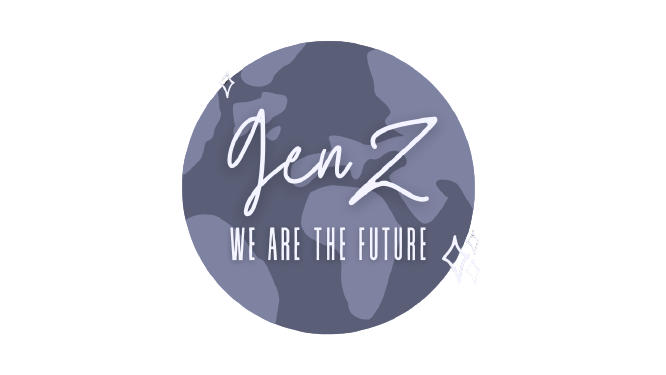Reducing Economic Barriers for Women
This article was written by a guest writer, Poorna Prakash.
Kamala Harris quoted, to women in particular, “Dream with ambition, lead with conviction, and see yourselves in a way that others may not simply because they've never seen it before.” Women are underrepresented in multiple fields, especially in the STEM (Science, Technology, Engineering, and Math) fields. Women only account for 39.0% of the global labor force of most companies. Although there is an expansion of women continuing in higher learning throughout the world, a gender gap in employment rates remains amongst workers in many countries. This problem should be addressed and taken care of as soon as possible, as women should be able to advocate for their voices and ideas as men are eligible to do. Historically, women were forced to resign themselves to domestic lives; the notion that women who do work should receive a meager amount of pay was commonly perpetuated. These prejudices were thought to be set in stone and no one was willing to look past them. However, women offer many unique aspects to the global labor force, such as enhancing the quality of work being done, strengthening the global economy, etc.
The topic of economic barriers remains a substantial problem throughout the world. Although many countries have taken steps to reduce the barrier for women, men still have access to opportunities that women do not. For example, it was discovered that a medical university in Japan had altered the entrance exam scores to decrease the number of female students and give admission to less-qualified men. The school said that they had no knowledge of this, but one man quoted that he “suspected that there was a lack of sensitivity to the rules of modern society.” Due to misogynistic practices like this, many women decide to not go to school. In fact, previously, a rule was set that stated that women were not allowed to go to higher institutions, as they were exclusively dedicated to men. Although developed countries such as the U.S., China, Japan, etc., are now part of the planet’s most exceptional, and prosperous countries, some of these women barrier-based issues are causing the countries more problems than necessary. Japanese-American Matsui said that “A lot of my ‘mama’ friends were not returning to the workforce to the extent that I assumed. I realized that maybe the growth solution for Japan was right in front of my face.” By creating a plan to add women to the global economy, Matsui projected it would add more than 7.1 million employees and could lift Japan’s net domestic product by 13%.
Although governments implemented measures to promote women in economics, there seemed to be no improvement. Especially due to the pandemic, many women are losing their jobs. A study of employment and income trends in China, Italy, Japan, South Korea, the U.K., and the U.S. found that women are 24% more likely to lose their jobs during the pandemic compared to men. Over the past couple of years, the respective governments have raised the amount for child care. Employment laws have also improved, which enabled women to work in multiple industries and have more flexibility in their work methods. These developments have made it more comfortable for women to engage in the economy. Groups such as the Women’s Action Network, the National Women’s Education Center, the Working Women’s Network, etc. are continuing to close the gender gap.
Companies such as Spotify and Google, who are providing training and funding for women who aim to be podcasters, have seen a higher interest rate than before. In addition, the voice of strong women should be heard throughout the world in order to show that women also play an essential role in the economy, and without them, it would shatter. Haruno Yoshida, the co-chair of the W20 committee stated that she thinks that in “a truly sustainable society... women should not be forced to change nor behave like men. Just like curved wood, a combination of different individuals, each with unique features, can make up a strong society that can continue for more than 1,000 years.” That is what countries are striving to portray in our community: a society where women can do any job equivalent to that of a man.
SOURCES:
Brook Larmer. "Why Does Japan Make It So Hard for Working Women to Succeed? (Published 2018)." Nytimes.com, 17 Oct. 2018
Catalyst. "Statistical Overview of Women in Global Workplaces: Catalyst Quick Take." Catalyst, https://www.catalyst.org/research/women-in-the-workforce-global/.
https://www.inc.com/sonia-thompson/6-ways-you-can-break-down-barriers-that-hold-women-back-in-business.html.
https://www.nytimes.com/2018/10/17/magazine/why-does-japan-make-it-so-hard-for-working-women-to-succeed.html.
N.a. "A quantum leap for gender equality: For a better future of work for all." Ilo.org, 7 Mar. 2019, http://www.ilo.org/global/publications/books/WCMS_674831/lang--en/index.htm.
Sayuri Daimon. "Women's empowerment equals economic growth." The Japan Times, 27 Jun. 2019, https://www.japantimes.co.jp/news/2019/06/27/national/womens-empowerment-equals-economic-growth/.
Sonia Thompson. "6 Ways You Can Break Down Barriers That Hold Women Back in Business." Inc.com, 18 Mar. 2020
“4 Women’s Rights Organizations You Can Support in Japan.” GaijinPot Blog, blog.gaijinpot.com/4-womens-rights-organizations-can-support-japan/.
“In a Barrier-Breaking Victory Speech, Kamala Harris Says She May Be the First, 'but I Will Not Be the Last’.” Time, time.com/5908999/kamala-harris-election-victory-speech/.


